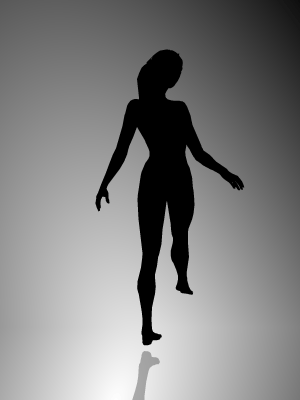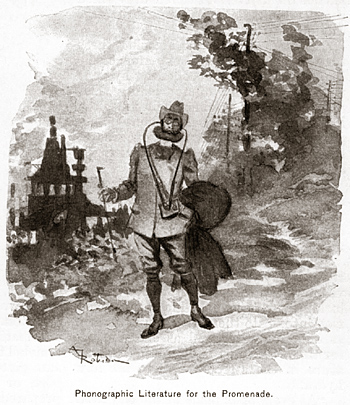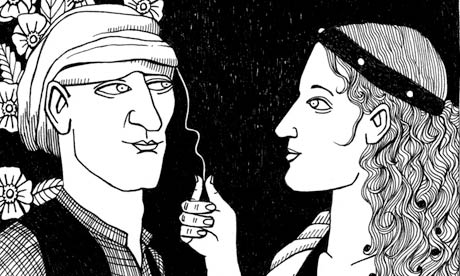I have such a cool cartoon to post about editing, but I've filed it away until I come to edit Blood Rose. For the time being, this beautiful art will have to suffice as a representation of the turmoil going on inside my mind.
Someone asked me the other day how the 'writing thing' is going.
I couldn't think of a succinct reply, so I poured another glass of wine.
I haven't completed anything new in over a year. That's quite a scary thought. Splintered Door, my collection of short stories, is something I'm proud of. I think it's actually some of the best stuff I've ever written.
And then... silence.
In a lot of respects.
It feels as though I've been standing still for a while now, and part of that problem is the thorn in my side referred to as 'the nemesis novel'.
It's a story I felt I had to write, rather than a story I enjoyed writing. There's a saying that you write to work out what you think. I ended up forming a collage of chaos out of fragmented experience. I suppose, if I had to talk about it in literary terms, it's partly a Casual Vacancy, in that it's a collection of stuff I lived through that I really needed to get off my chest, and, on the other hand, it's a Tragic Universe in that there's no particular plot to it. It's a story for a story's meandering sake, rather than a story with the reader at heart.
I never thought that I could write 85,000 words that I wasn't proud of. Worst of all, I'm not entirely sure why I'm not proud of it. There is something in the other three novels that I know this one doesn't have.
Does that mean it isn't a valid story? No, it is valid. It's just a very different kind of story. Perhaps, to throw in a Family Guy analogy, it's a Brian to my Peter Griffin, my Stewie, and my Quagmire? Maybe it's just a little too close to my own voice to be comfortable?
Or perhaps I'm just afraid of poor reviews? Which is a lousy reason to turn your back on what you've written. Writing is a skill and it's through mistakes that we take that skill from a hobby to an art.
Things have picked up recently. I'm writing like a mad thing on Blood Rose, and I love it. It will be the best thing I've written by the time it's finished. I think I'm bringing everything I've learned over the past four novels to the table, and then some.
At the same time, I asked my dear friend Ruairí, who is now a qualified proofreader, to go through the nemesis manuscript.
My publisher hasn't turned it down flat, but she has been sitting on it long enough to give me the impression she may be trying to think of a polite way of saying 'no'.
Perhaps it's because I was so engaged with my first three novels: Angorichina, Lucid and Georg[i]e, that this one feels a bit foggy. I don't think that there's actually anything particularly wrong with it. Nobody has thrown it back in my face snorting 'this, madam, is trash!' The nearest it's come was Ruairí's assertion:
Finished the book and really enjoyed reading it... I ended with the feeling that the pace was very much the same throughout but I think that is more a function of the very deliberate way you have to read through a text when you are proofreading, so I want to have another go.
No, I think he's right. This is where the Tragic Universe bit comes in. As we learn from that book, a level pace goes against everything we're taught as writers, but it can sometimes be acceptable. After all, what is a story? Is there a point? Does there need to be?
Perhaps that is my problem with it. If you write to work out what you think, and in so doing you realise that there probably isn't a point to your thoughts, what, then, does that say about you as a person, yet alone a writer? I don't know - and that irritates me.
Sorry? Another glass of wine? Don't mind if I do.
The long and the short of it is that I can't leave things undone like this. 85,000 words is too long to simply erase. Whatever I think of it now, at some point, once upon a time, I did see a point in writing it. 85,000 words worth of point. So, one way or another, I do need to do something with it.
My 1k a day writing regime with Blood Rose has been fairly pleasurable. I love this story. I'm in love with this story. The characters write themselves, it's that easy. Yet I'm also OCD enough that I have to complete things in a certain order. I know that I will never be able to fully enjoy this new novel whilst the cloud of the old one continues to loom.
I am currently forcing myself to edit one chapter a day of nemesis novel, making the changes Ruairí has suggested. This sounds pretty good going until you understand that, the way in which this novel is written, a chapter equates to two pages of A4 or less.
I have to accept the fact that I am completely incapable of being objective about it anymore. The best thing I can think to do is to get through the edit and send it out for beta reading. See what my nearest and dearest think of it.
Only then can I make a concrete decision as to what to do with it.
NIGHTMARE
Panic hits me as I wake. Where am I? I grope in the dark, trying to find a light switch, then the street lamps outside the window gradually reach my eyes and I remember.
A sound makes me look towards the bed. There is pressure on my hand, as though someone is squeezing it.
“Noel?” I whisper.
A muffled sob.
“Noel – are you awake?” I squeeze back and rub his hand gently. “It’s okay, it’s Maya – I’m here.”
I hear him inhale, thick and shaky.
“It hurts—”
“I’ll get the nurse,” I say, reaching over and pressing the button by his bed.
A moment later, a young woman enters the room.
“He’s awake,” I explain, “and in pain.”
She turns on a lamp by the other side of the bed. Looking around, I take in the other two patients properly for the first time. They are in an even worse state than Noel. One is bandaged from head to toe, his left leg raised in a sling. The other has his eyes covered and the stub of one arm bandaged below the elbow, at the point of amputation. Land mines, perhaps? Victims of a war that ended several years ago?
The nurse injects Noel with something, then raises a cup of water to his lips. He drinks thirstily, resting back against the pillow with a shudder.
“I have given him medicine to stop the pain,” she tells me, throwing the needle in a yellow bin by the door. “He is suffering from shock.”
She leaves the light on, for which I am eternally grateful. Even though his face is a mess, I prefer it to the disorienting dark.
“It’s me, Maya,” I repeat. “Do you know where you are?”
“The hospital,” he replies, eyes closed.
“That’s right. We’re getting you home,” I say. “Your family are waiting for you. When you’re ready, we’ll airlift you to them.”
“What about Max and Tochi?”
He must be talking about the other people in the car. This is the moment I’ve been dreading. I could lie for the sake of his health. I could tell him I don’t know. But then he would urge me to find out. I would have to tell him the truth eventually. Can he take it, after all he’s been through?
“I’m sorry.”
His bottom lip tightens and he nods. “I think I knew that,” he says.
“Do you remember anything?”
“No.”
“You can’t remember what happened?”
“No. The last thing I remember – we were in a village, up in the hills. I can’t remember where. We’re with a room full of blind people. Doing a consultation. I remember—” he breaks off. I rub his hand rhythmically. After a moment, he starts to talk again. “There was this one old woman, she was blinded in the war. Her husband and her two daughters were killed. All she had left was a son.
“He was just a little thing. Everybody told her to stay home, to live off charity because she was blind. But she said ‘no’. She was determined to work, to live as an independent person. Someone her son could be proud of.
“She was telling us how she would go out every day, how her neighbours taught her to use the tools again. She had to re-learn everything. Adjust to being blind.
“But she did it. She earned money to buy food and clothes. She worked the fields with her little boy tied to her back. Then, when he got too big for her to carry, he sat under a banana-leaf shelter to keep him safe from the sun.
“One day they were hoeing the ground, preparing to plant crops. All of the women stretched in a long line, bringing down their blades on lumps of hard earth to shatter them, softening the field so that the plants could grow taller.
“They brought their tools down, and raised them up, and brought them down again,” his hand twitches at the wrist as though he might illustrate if he had the strength.
“This lady, she brought down her hoe, and she felt a soft thud. She told us that she knew. In that one moment, she knew what had happened.
“Her little boy had wandered in front of her. Being blind, she hadn’t seen him. Her only remaining child, the one that she had protected from harm, had worked so hard for – dead.”
He starts sobbing, eyes scrunched closed, tears streaming down his face.
My entire body turns to lead. I can’t climb onto the bed, it’s not big enough. I can’t wrap him up in my arms because he’s too damaged, I would hurt him.
There is nothing that I can do but continue to sit exactly where I am, holding his hand.


















